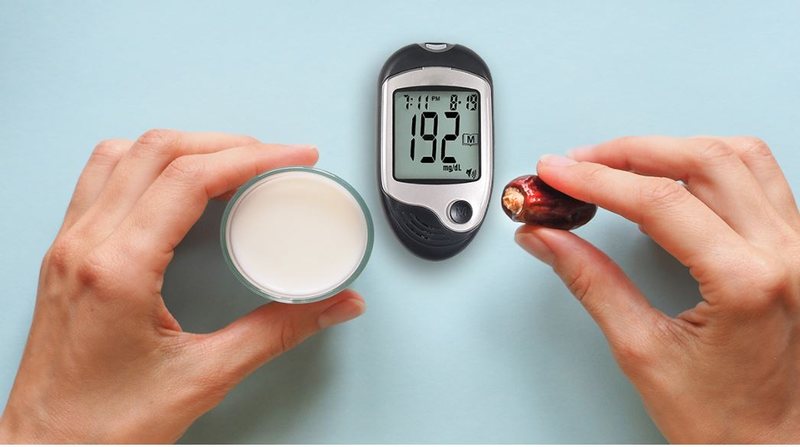The mental and physical benefits of fasting Ramadan

SIGN UP FOR YOUR FREE DAY PASS TODAY!
Imagine stepping into a month where your life transforms, not just spiritually but physically and mentally.
That's the essence of observing Ramadan fasting.
The benefits of fasting Ramadan stretch far beyond the spiritual upliftment it's renowned for; they dip into improving your physical health, tweaking your body composition, and enhancing mental clarity.
In this journey through the holy month on the Islamic calendar, you'll get insights on managing weight effectively during and after Ramadan, see how fasting influences blood sugar levels positively, and discover its impact on heart disease risk.
For those navigating diabetes or considering fasting while pregnant, there's guidance tailored just for you.
As we delve into the revered period of Ramadan, we uncover how its traditional observance opens doors to enhanced health without sidelining everyday responsibilities or diminishing one's wellness.
Health Benefits of Ramadan Fasting
Ramadan fasting isn't just a spiritual journey; it's a road paved with health benefits.
Weight management during this holy month is like hitting the reset button on your eating habits.
Many observe weight loss, but here’s the kicker: maintaining that new body weight post-Ramadan can be tricky.
Explore More Healthy Tips for Ramadan Fasting.
Weight Management During and After Ramadan
Fasting not only helps to lose weight but also significantly transforms your blood sugar and your body fat indicators, making it a multifaceted health boost.
It's like giving your body an internal tune-up.
For men, taking part in Ramadan fasting has been linked to decreased total cholesterol and triglyceride levels—think of it as clearing out the gunk from your system.
Women aren’t left out either; they often see an uptick in high-density lipoprotein levels, which is basically boosting their heart defense shield.
Explore More WEIGHT LOSS TIPS for Ramadan
Lipid Profile Improvements
If you're curious about how all this works or need more detailed fasting tips to keep those results lasting longer than just a crescent moon sighting, check out these insights.
Remember though, everyone’s experience with Ramadan varies slightly due to differences in food intake and physical activity.
Spiritual Upliftment Through Ramadan Fasting
Observing Ramadan fasting is not just a physical exercise but a deeply spiritual journey that enhances one's taqwa, or consciousness of Allah.
In this time, believers are presented with a special chance to deepen their devotion and savor the divine favors showered on those who sincerely observe the fast.
The act of fasting during this holiest month in the Islamic calendar serves as a direct invitation to meeting Allah through heightened worship and reflection.
Ramadan is not merely a time to refrain from eating and drinking; it's a journey of self-control, enduring patience, and cultivating compassion for the underprivileged.
Incorporating spirituality into daily life becomes more tangible during Ramadan. The crescent moon marks the start of an intensive practice where each day is seen as a step closer to divine proximity.
Increases in prayer, Quranic recitation, and acts of charity are encouraged alongside fasting to maximize the spiritual benefits experienced during this time.
Ramadan Fasting with Diabetes
If you're a diabetic patient thinking about observing Ramadan fasting, there's some homework to do first. Prior to embarking on this journey, obtaining thorough medical counsel is imperative.
It's not merely a piece of advice; ensuring your well-being while fasting requires making this a priority.
Diabetic patients need to balance their food intake and physical activity during fasting hours carefully.
Consulting with healthcare providers can help create a plan that maintains blood sugar levels while respecting the holy month's practices.
They might suggest adjustments in medication or offer specific dietary and physical activity consulting tailored to your needs during this period.
A key stat shows us that those who plan well can participate safely: Diabetic patients who prepare properly under medical guidance don’t have an increased risk of complications like hypoglycemia or hyperglycemia
during Ramadan.
Explore these recommendations for guidance on balancing diabetes management with fasting commitments.
Read more: RAMADAN DIET WEIGHT LOSS
Fasting’s Impact on Immune System and Kidney Function
When the crescent moon marks the start of Ramadan, millions begin their fast. This isn't just a spiritual journey; it's also a health venture.
Studies indicate that observing the fast throughout this sacred period can enhance immune defenses while preserving renal efficiency and the balance of substances in urine.
The human body is an amazing machine that adapts to changes in food intake remarkably well. During Ramadan, when fasters abstain from eating and drinking from dawn until sunset, something incredible happens.
Amidst the dawn-to-dusk fasting of Ramadan, our bodies ramp up their defenses, enhancing resilience to sickness.
One might wonder if such prolonged fasting could harm other bodily functions like those of the kidneys.
Yet studies conducted have found no negative effects on kidney function or urine composition among those observing Ramadan fasting.
Our physiology seems remarkably adaptable, flourishing even when faced with the challenges of limited nourishment and hydration.
Ramadan Fasting During Pregnancy
Pregnant women often wonder about the safety and implications of observing Ramadan fasting. Given the limited research on its effects on offspring, caution is advised. Yet, for many, this holy month holds significant spiritual importance.
Fasting during pregnancy comes with unique considerations.
The human body naturally detoxifies itself, but when pregnant, both the mother's and baby's nutritional needs must be prioritized. Studies suggest that fasting could impact a child’s health later in life; hence why most health professionals recommend against it during pregnancy.
For those who still choose to fast or are contemplating it, consulting with healthcare providers is crucial to ensure both maternal and fetal well-being.
They can offer personalized advice based on individual health conditions and may provide alternative ways to participate in Ramadan spiritually without fasting from dawn till sunset every day of this holiest month on the Islamic calendar.
Conclusion
Embarking on the sacred path of Ramadan, you've delved into the profound advantages that fasting during this period offers. You've seen how it reshapes your body and spirit.
Remember this: managing weight can be simpler during Ramadan, but keeping it off takes mindfulness afterward.
Remember too: blood sugar levels and heart health see positive shifts from fasting days.
For those with diabetes or pregnant women considering fasting, remember guidance is key. Always consult a professional first.
Embarking on a fast transcends mere bodily concerns, offering a gateway to spiritual awakening and enhanced mental lucidity.
Let these insights fuel not just a month of observance but a lifetime of wellness choices. The benefits are clear; let them guide you to a healthier tomorrow.
GET YOUR FREE TRIAL TODAY














































































